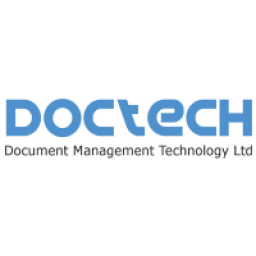Businesses in the UK must comply with various legal requirements around document retention, whether associated with tax, employee data or business records.
Safeguarding sensitive company information is vital as organisations that don’t comply, and depending on severity, can harm their reputation, bottom line or even face criminal damages.
Document Retention Policy
It’s important to have a document retention policy in place as a way to keep track of legal requirements. It ensuresno confidential information is kept longer than it should beand provides adestruction datefor all official documents.
Storing documents for the right length of time means they don’t take up unnecessary space, they are available for audits and accessible to address any liability issues.
Which Documents need to be Retained?
No matter the company size or industry, managingdocument retention is essentialforcomplianceand what needs to be kept will differ depending on product or service. Food manufacturers for example will have different document types compared to a retail outlet.
A document retention policy should cover the storage and retention of the following documents:
Managing Retention Problems
Keeping on top of document retention can be a huge task. With multiple document types that have various retention rules, all starting at different times, how do you manage it?
Maybe you use an Excel spreadsheet, which in itself is another document to have to control and update. Or perhaps information is saved across folder structures that clearly show the creation or deletion date. Either way, both are time consuming and open to error.
For example if you’re deleting a 2019 CV folder from the network,how do you ensure these CVs aren’t still in email inboxes or saved to someone’s desktop?
We’ve spoken to companies where an Office Junior is sent to look throughpaper filesto make decisions on what needs to be kept or destroyed. Not only is this a poor use of their time, but they could mistakenly destroy or keep information they shouldn’t.
When it comes toemployee records, how would the Office Junior easily know who was a current or past employee, and therefore which rule to apply to their documents. Not only that, butemployee records should not be easily accessible to anyone other than HR or Management.
How to Manage Document Retention
When managing retention rules you shouldconsider whether your systems (if any) and processes are good enough.A dedicatedDocument Management Systemcan securely and easily manage documents, but you also need to ensure staff follow business rules around document storage.
With our solutions,deletionworkflowscan be easily applied to document. Upon storage, the system is set to know that six years on from the invoice date, that document type can be deleted. Likewise after six months, any job applications removed. These rules can be applied to any document for any period of time and once set up, the system takes care of the rest.
Organisations Need Clear Processes
In order for this to work, organisations need to have clear processes in place for retaining and deleting documents and employees must not save files locally. To aid with this, our document management solutions allow users to store documentsstraight from their inboxinto the system.
They’re stored in a highly organised way and tagged with metadata to make searches simple. Users are able to search across a range of fields such the document type of ‘invoice’ and date ‘2020’ to bring up all relevant invoices. This makes the deletion much simpler as documents are grouped together and can be deleted as a batch.
Document Control
Organisations will also have control over who (if anyone) is able to delete a document. This automatically prevents the unauthorised destruction of documents, improves compliance and enhances security.
Providing a simple way to manage document retention willsave employees hours of wasted time packing up paper files to be sent for storage or working through network folders and manually deleting them. Digitally storing documents will save money spent on paper, printing and off site storage.
Having a dedicated solution in place meansdocument compliancecan easily be achieved, removing the burden from staff and enabling greater productivity.
DocTech Want to Help
We’d welcome a chat with you if you’re struggling to efficiently manage document retention. We help our clients day in, day out with this requirement and we know we can help you.
With compliance laws in place such as GDPR and ISO 15489, and with regulations from HMRC and Companies House that need to be followed, can you afford to get it wrong?
Schedule a Call
 Partners&
Partners&




